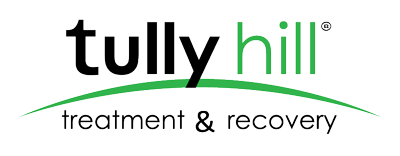There is no better time to commit to sobriety than the beginning of a new year. It’s a time to start fresh and hold ourselves accountable for our recovery goals. If you are struggling with addiction and you have tried to get sober before, then you’re in the right place. We want to share a list of some ways to help get sober and stay sober in the new year.
Commit
It might sound like a simple first step, but making the commitment to yourself to get and stay healthy and get and stay sober is so important! You deserve to live a happy, healthy life. By setting realistic and attainable goals for yourself this year, you are much more likely to achieve and maintain sobriety.
Get the family involved.
Family is a huge part of recovery. Addiction does not just affect you, it also affects the ones you love the most. Recovery and sobriety can give you the chance to mend relationships with your friends and family, and talk to them honestly about what has been going on in your life. Your family is your biggest support system. There is nothing quite like having your own personal cheer squad sharing in your triumphs and providing love and support in your struggles. If you are looking for a facility to help you with your recovery, choosing one with Family programming is important. People who have the support of their friends and family behind them when they enter recovery are much more likely to achieve and sustain sobriety.
Detox Safely!
Seriously, and preferably, see a medical professional versed in alcohol and/or other drug addiction withdrawal or go to a hospital ER. Detox is nasty business and can cause all kinds of medical problems, some of which are fatal. This is not something you want to go through at home. A hospital or detox facility like Tully Hill can make sure that you are not only safe but comfortable as well.
Get Away
Sometimes in order to make the big changes in life, we need to take a step back and remove ourselves for the environment that is fueling our problems. Sobriety is a journey of the mind, body, and soul. An inpatient facility will allow you the peace and quiet to focus on yourself. At a rehab facility you will be surrounded by a supportive community of peers and medical and clinical professionals to help you. An inpatient facility will provide the structure, tools and resources to support sober life.
Make a plan: an aftercare plan
Don’t let all of your hard work at rehab go to waste. Having – and following! – an aftercare plan increases your chances of staying sober exponentially. Some treatment facilities will even set up an aftercare plan for you. Attending outpatient sessions or seeing a treatment professional as needed will help ensure your recovery. Part of your plan should be setting manageable goals for your treatment and for yourself.
Attend a meeting – Often!
Find your local AA or appropriate 12-Step meeting. Most meetings can be found on the AA and related addiction websites. There are open and closed meetings. You can even bring a friend or family member to open meetings. Spending time listening to others talk about their struggles and sharing your own experiences is super helpful. There is nothing like being validated and knowing that you are not alone.
Buddy up!
Don’t underestimate the power of a sober support system. Find someone who is living in sobriety and is willing to take you under their wing. They will introduce you to members of the community who are experiencing the same issues that you are.
Ready to take the first step towards sobriety this New Year? Make sure you set yourself up for success.
If you are having trouble finding a treatment facility or if you have questions about getting sober, give us a call. Our Admissions team is always ready to help you take the next step towards sobriety. Even if Tully Hill is not the right fit, we will help refer you to another treatment facility that meets your needs.
Please note that, whereas most if not all of our older blog posts do not have appropriate, non-stigmatizing language – i.e., substance use disorder in place of addiction and/or chemical dependency – all subsequent posts do and will retain language that avoids propagating negative stereotypes and biases through the use of slang and idioms.
Likewise, we have pledged to follow the guidelines set forth by the Office of National Drug Control Policy and that are conceptually and in general endorsed by the American Society of Addiction Medicine (ASA), the federal Substance Abuse and Mental Health Services Administration (SAMHSA), and other federal and state entities governing and regulating substance use disorder. We will therefore now use person-first language that respects the worth and dignity of all people; that focuses on the medical as well as clinical nature of substance use disorders and treatment; and that promotes the recovery process.










